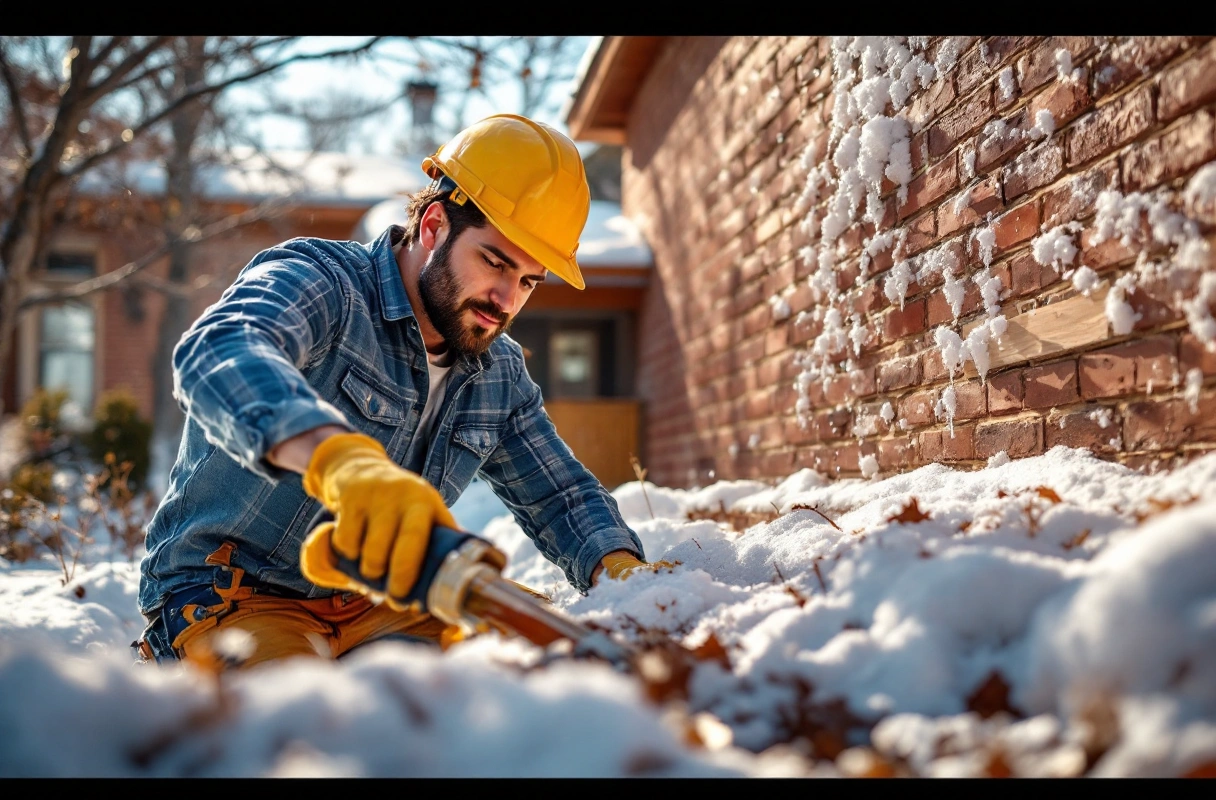As winter's chill recedes, Denver landlords face a crucial transition that demands proactive attention. The spring thaw brings with it the promise of new beginnings but also the potential for significant property damage if not managed properly. From frozen pipes to roof leaks, the effects of winter can linger long after the snow has melted. This article provides essential strategies for effectively planning and executing spring thaw repairs to ensure tenant safety and property longevity.
Navigating the Aftermath of Winter: What Every Landlord Should Know
The aftermath of winter can leave landlords with a daunting task: assessing the damage that may have occurred during the frigid months. It is essential to conduct a thorough inspection of the property to identify issues that could escalate if left unaddressed. Common problems associated with spring thaw include:
- Frozen Pipes: When temperatures drop, water pipes can freeze, leading to cracks and leaks once they thaw. Inspect all visible plumbing and listen for any unusual sounds that might indicate a leak.
- Roof Damage: Snow accumulation can cause ice dams that prevent proper drainage. Check for sagging areas, missing shingles, or leaks in the attic that could indicate roof damage.
- Foundation Issues: Thawing ground can lead to settling or shifting foundations. Look for cracks in walls or uneven flooring that could signal more serious problems.
Addressing these issues early can prevent more extensive damage and costly repairs down the line. Regular inspections following winter can help landlords stay ahead of potential problems and ensure properties remain safe and habitable.
Creating a Strategic Plan for Repairs: Steps to Consider

Developing a comprehensive repair checklist is a vital part of preparing for spring thaw repairs. Start by listing all areas of the property that need attention, including both interior and exterior components. Here are steps to consider when creating your plan:
- Conduct a Full Property Inspection: Inspect all areas of the property, including roofs, gutters, plumbing, and foundations. Document any damage or areas needing repair.
- Prioritize Repairs Based on Severity: Identify which repairs are urgent and which can wait. For instance, a leaking roof should be addressed immediately, while cosmetic repairs can be scheduled for later.
- Gather Estimates from Contractors: Obtain multiple quotes from local contractors for any major repairs. This will help you budget appropriately and find the best service for your needs.
- Schedule Repairs Promptly: Once you have prioritized your repair list and gathered estimates, schedule the necessary work to begin as soon as possible. Early action can mitigate further damage and costs.
A strategic approach to repair planning not only addresses immediate concerns but also sets the stage for effective property management throughout the year.
Ensuring Tenant Safety: Best Practices for Landlords

Communicating with tenants about safety protocols is essential during the spring thaw period. As a landlord, being proactive in addressing tenant concerns can foster trust and ensure a safe living environment. Here are best practices to consider:
- Inform Tenants of Potential Hazards: Make tenants aware of potential issues, such as ice on walkways or ongoing repair work. Clear communication helps tenants feel secure and aware of their surroundings.
- Address Tenant Concerns Promptly: Encourage tenants to report any issues they encounter, such as leaks or strange noises. Responding quickly not only resolves problems but also shows tenants that you value their safety.
- Provide Resources for Emergency Situations: Share contact information for local emergency services or maintenance teams. This ensures tenants know whom to reach out to in case of urgent situations.
By prioritizing tenant safety and maintaining open lines of communication, landlords can cultivate a positive rental experience that encourages tenant retention.
Maximizing Property Value through Effective Maintenance
Understanding the long-term benefits of preventative maintenance is essential for landlords looking to enhance property value. Regular maintenance not only keeps properties in good condition but also prevents minor issues from escalating into costly repairs. Here are some points to consider:
- Invest in Routine Inspections: Schedule regular property inspections throughout the year. These inspections can help identify potential issues before they become significant problems, saving you money in the long run.
- Perform Seasonal Maintenance Tasks: Create a seasonal maintenance checklist that includes tasks such as cleaning gutters, checking HVAC systems, and inspecting for signs of wear and tear. Addressing these items promptly can extend the life of your property and its systems.
- Document Repairs and Maintenance: Keep detailed records of all repairs and maintenance performed on the property. This documentation can be invaluable when it comes time to sell or refinance, as it demonstrates the care you've put into the property.
Timely repairs and effective maintenance not only ensure tenant safety but also contribute to the overall value of your property, making it a wise investment for the future.
Planning for Spring Thaw Repairs with RentalRiff
As spring approaches, Denver landlords must prepare for the unique challenges that come with the thaw. By understanding the potential issues, creating a strategic repair plan, ensuring tenant safety, and maximizing property value through maintenance, landlords can navigate this transition effectively.
At RentalRiff, we specialize in providing professional maintenance and tenant support tailored for independent landlords and small portfolio property owners. Our services are designed to help you manage your properties efficiently without the need for full-service property management. If you're looking for assistance in planning and executing your spring thaw repairs, visit our Denver Metro services page or contact us for more information. Let us help you ensure a safe and well-maintained property for your tenants this spring.

